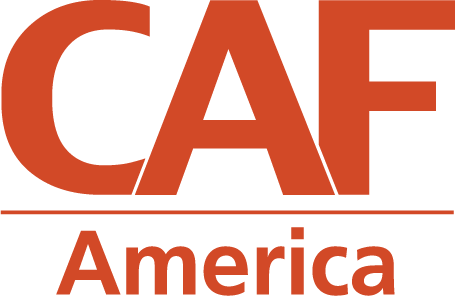What Is Equivalency Determination?
Equivalency Determination (ED) is the process through which a qualified tax practitioner makes a good faith determination that a foreign (non-US) organization is the equivalent of a US public charity. Once acquired, an ED allows funders to give to the qualified grantee as if they are a public charity in the US. This enables US foundations to make unrestricted grants to foreign charities, including for the acquisition of capital assets or to fund endowments. Equivalency Determination is the most convenient tool for grantmakers giving across borders anywhere in the world, and we hope to see other countries adopt similar mechanisms to support international philanthropy.
When a grantmaker wants to acquire an ED, it has three options:
- Collect an ED Affidavit that articulates the information needed to complete the good-faith determination, and certify the review internally before making the grant;
- Work with a qualified tax practitioner or attorney to certify the ED based on the completed Affidavit, creating an ED certificate; or
- Purchase an ED from a repository or other provider of due diligence services, signed by a qualified tax practitioner or attorney.
Once the proper paperwork has been collected, the grantmaker maintains records of it for audit purposes and proceeds with funding the desired projects. Critically, an ED is a snapshot of an organization at one specific point in time.
For grants made under Equivalency Determination, the certificate itself does not substantiate any due diligence on the grantee once the grant has been made.
See more information on the IRS website here.
EDs Are Not a License to Give
While Equivalency Determination is a powerful and convenient tool that facilitates international philanthropic giving, on its own it is not sufficient to support high-quality grant programs. Seen through CAF America’s 3 Rs of International Grantmaking, funders should consider many additional factors when designing a grant program and approving a cross-border grant.
ED Is Not an Effective Risk Management Tool
The primary purpose of an ED is to avoid a taxable event triggered by making a grant for non-exempt purposes. And while ED practitioners have been directed to include sanctions reviews in the affidavit process since 2017, the information collected in an ED affidavit only represents a single point in time. At the time they complete an affidavit, your grantee may not have been sanctioned or had any sanctioned individuals on their board or senior staff, but it is important to continuously track these individuals to ensure that you remain compliant. This is particularly relevant if you are using an ED purchased from a third-party provider, or if you are relying on the same ED certificate for multiple installments of the same grant, as the review may be multiple months old and the facts may have changed.
There are a number of regulations and best practices that should be followed when making grants to foreign charities, such as:
- Mitigating the risk of criminal or terrorist activity per the requirements of the PATRIOT Act;
- Ensuring your funds are not used in corruption or bribery, per the requirements of the Foreign Corrupt Practices Act (FCPA); and
- Monitoring sanctions programs and licensing requirements set by the Department of Treasury’s Office of Foreign Assets Control (OFAC) and ensuring compliance.
In addition to an ED, CAF America recommends that grantmakers maintain an ongoing risk management program that follows these best practices to ensure that grantees (and you) maintain full regulatory compliance throughout the grant period.
Grantee Countries Do Not Recognize Equivalency Determinations
When making a cross-border grant, while US compliance is extremely important your foundation actually needs to follow laws in two countries—and many of your grantees may not be in compliance if you are relying on an ED alone. Many countries have imposed additional requirements for charities to access foreign funding, and US grantmakers can find themselves or their charity partners retaliated against if these laws are not followed. Especially for grantees who have never received foreign funds before, an ED is not sufficient for them to comply with their domestic rules and regulations. Examples of laws cross-border grantmakers may encounter include:
- In some countries, grant recipients may need to set up dedicated bank accounts to securely manage their foreign funds.
- Certain countries might ask organizations to complete government registration procedures before receiving foreign grants.
In a high-profile example, China introduced a new regulatory structure in 2017 that effectively prohibited unrestricted grants, negating most of the benefits of Equivalency Determination and adding substantial administrative burden on NGOs receiving foreign support.
On its own, Equivalency Determination solves none of these regulatory challenges.
CAF America recommends that grantmakers work with experts like us, or with grantees themselves, to ensure that all applicable rules are being followed before making a grant. Failure to do so could result in the grant being confiscated, or even with the grantmaker being barred from further work in the country.
ED Doesn’t Address Reputational Risk
Cross-border grantmakers generally understand they are assuming more risks when they decide to give internationally, but not all these risks are regulatory. Reputation is a key factor for many of CAF America’s biggest donors, and they tell us that reviewing reputational risk in a foreign country is often the most difficult consideration when they evaluate making a grant.
The Equivalency Determination (ED) process is a valuable tool for assessing an organization’s compliance with US charity rules, but it doesn’t address reputational risks. Just as you carefully choose which domestic nonprofits to support, it’s important not to view ED as an endorsement of the grantee’s programs, impact, or reputation. Evaluating these factors should be a separate step in your decision-making process. While there are various approaches to this, even the most straightforward one involves checking local media to identify any aspects of the grantee’s reputation that may not align with your values and mission.
CAF America recommends that this type of reputational risk review is included as standard in any holistic cross-border grant program.
Now What?
International grant programs are not simple to build and operate, and funders should be hesitant to treat the Equivalency Determination certificate as a license to give. While it is a powerful tool, ED is only one part of a successful grant program.
Do you require your grantees to apply for grant funding? Expenditure Responsibility might be better for you than Equivalency Determination. See more on Expenditure Responsibility here.


